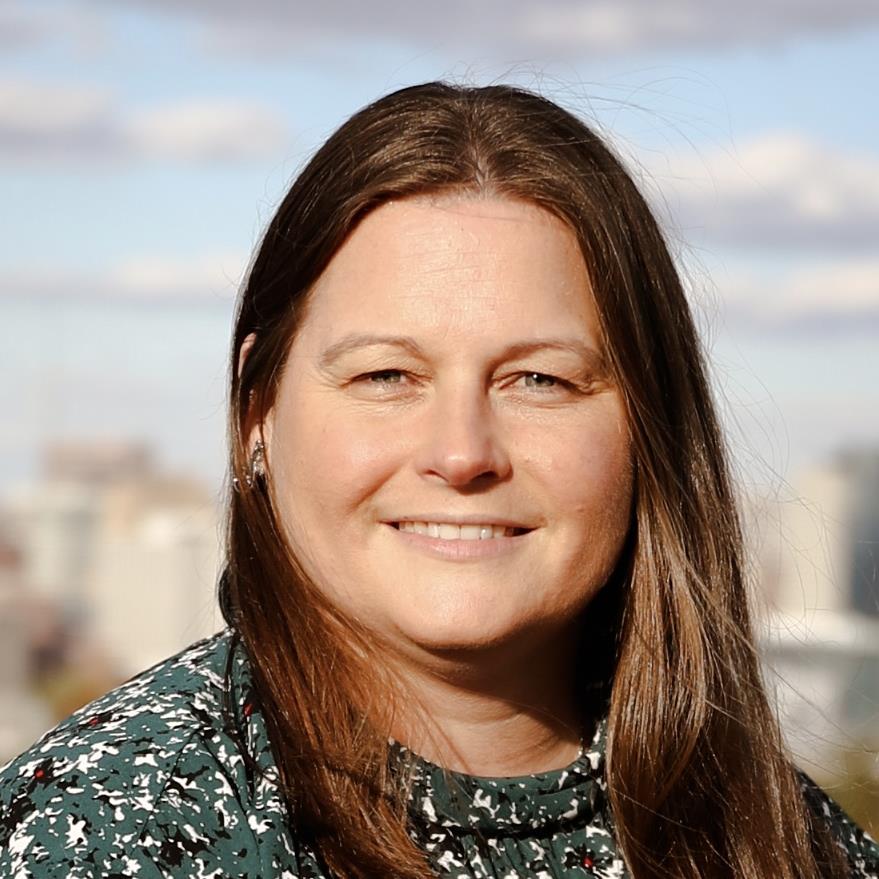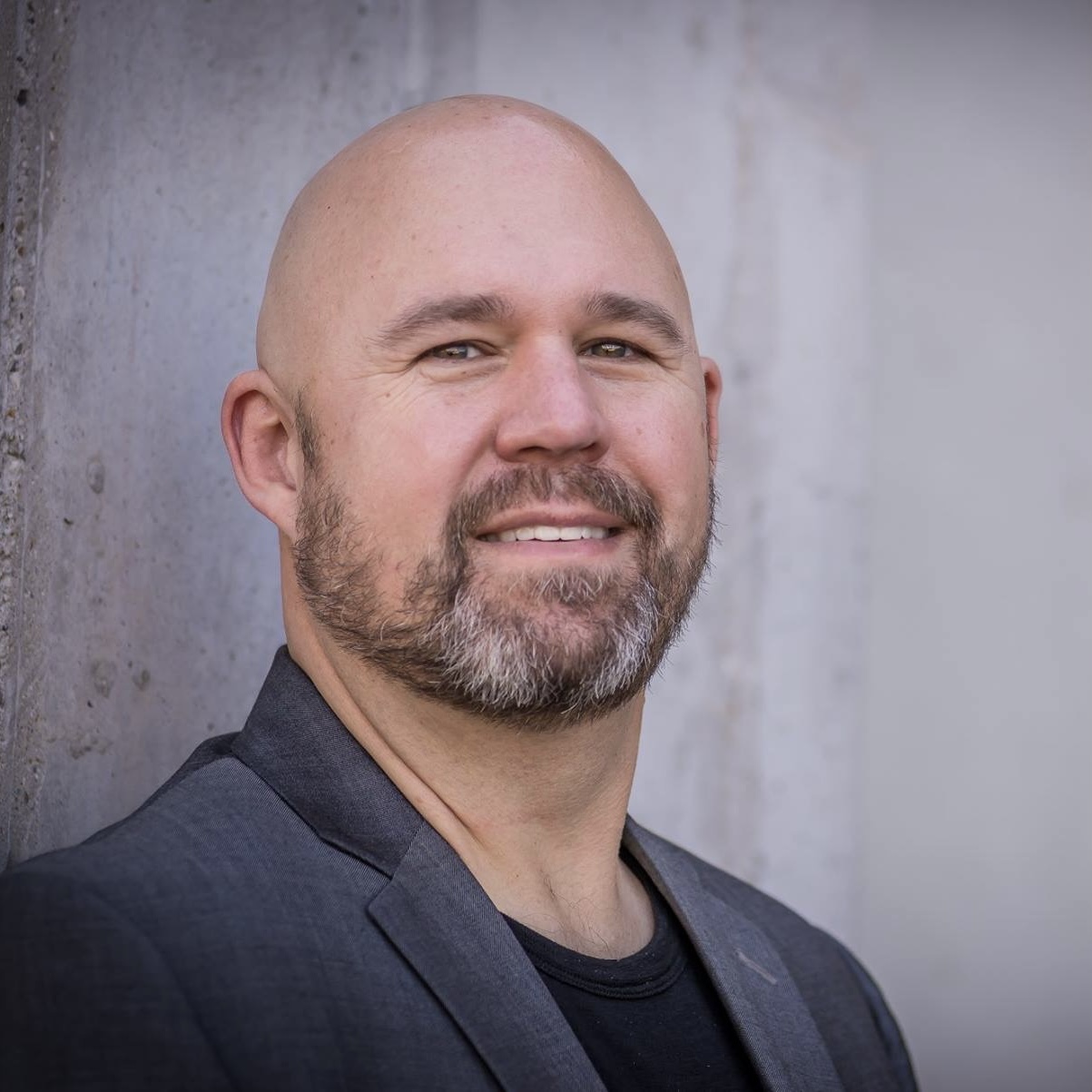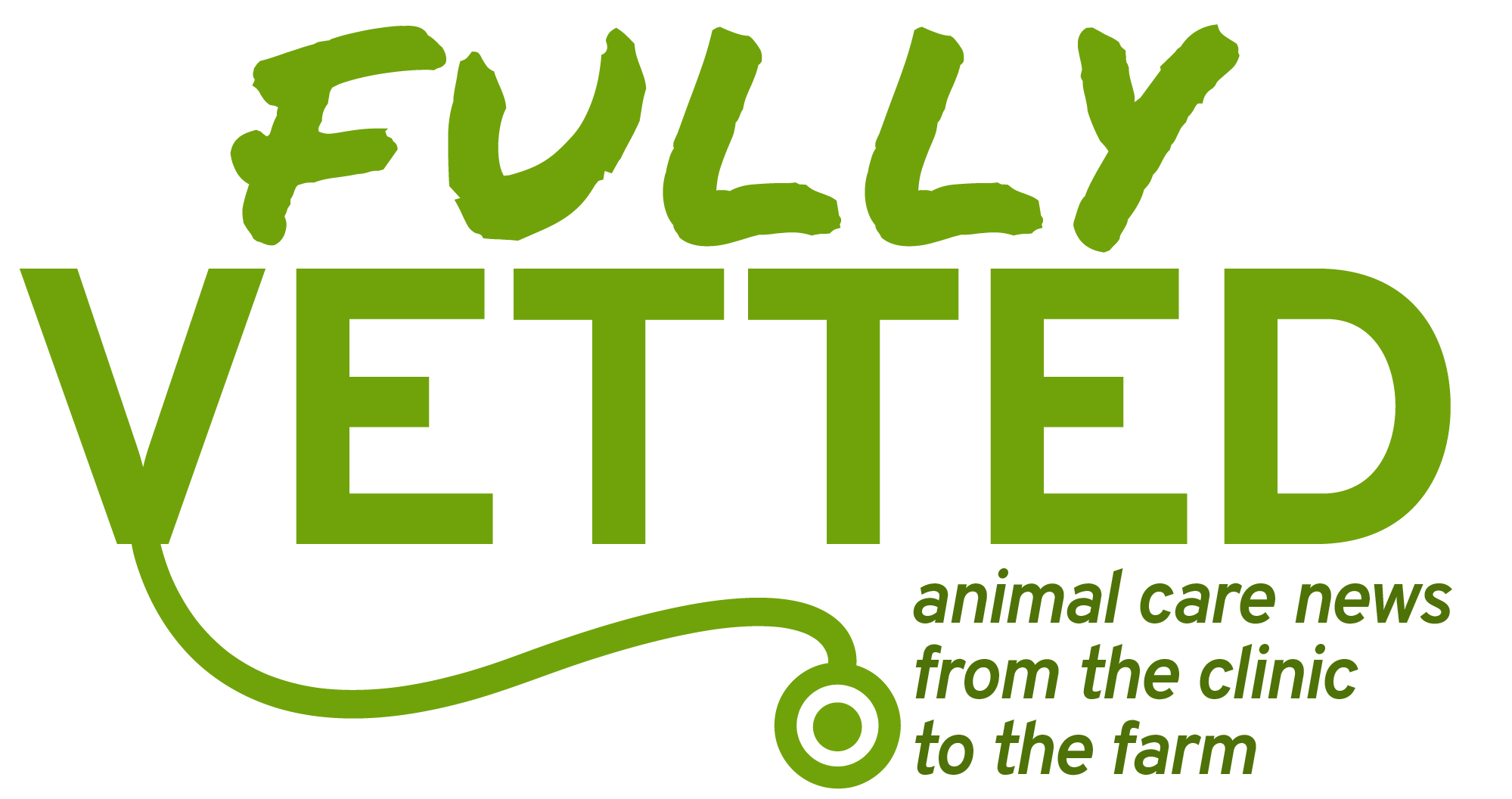
Episode 66
Becoming the Modern Veterinary Professional
With Dr. Jen Quammen & Ryan Smith
MIDWEST VETERINARY CONFERENCE PREVIEW SERIES See All Episodes »
Just because things have “always been done that way” doesn’t mean they should be. After all, the veterinary profession has changed dramatically in the 21st century; so too should the veterinary professionals who work in it. Tradition has its place and might be a great starting point, but things must continually be evaluated in order for the profession to thrive.
Enter the “modern veterinary professional.” This is a person who looks at the way things are and says, “Something has to change, it has to be now, and it has to start with me.” No longer do you need to be stuck, broke, and frustrated in your career! There are ways you can take back control and ultimately gain more time, more money, and more impact—both in your professional and personal life.
In this episode, Dr. Jennifer Quammen and Ryan Smith of Veterinarian Coaching join us to explore the paradigm of the modern veterinary professional. They offer a sneak peek at their MVC 2023 sessions, during which they’ll dive deep into their model of the modern veterinarian and how you can make simple changes that will have a huge impact on your overall success.
Registration for the 2023 Midwest Veterinary Conference is open! Featuring 300+ hours of live and on-demand CE in 25 tracks, 75 expert speakers, and more than 100 exhibitors, this is another event you won’t want to miss!
Episode Guests

Jennifer Quammen
DVM, mph
Dr. Quammen is an Ohio State grad who has practiced as an associate, medical director, and a relief veterinarian. A co-founder of Veterinarian Coaching, she also currently serves as Vice President of the AVMA. | Learn more »

Ryan Smith
M.S.
Ryan holds a master’s in exercise physiology and has worked with athletes of all skill levels, in addition to being an Ironman himself. He co-founded Veterinarian Coaching with Dr. Quammen in 2014. | Learn more »
Photo by Tima Miroshnichenko on Pexels
Transcript
Krysten Bennett: Hey, everyone. Krysten Bennett here with Mia Cunningham. And we are joined today by Dr. Jen Quammen and Ryan Smith of Veterinarian Coaching. They are here to talk to us a little bit about their Staff Development sessions at the 2023 Midwest Veterinary Conference.
Mia Cunningham: Good morning and welcome to the show.
Ryan Smith: Cool. Thanks for having us.
KB: Oh, not at all. We are glad to have you. To kick things off, can you both introduce yourself? Tell us about your journey in veterinary medicine and how you came to be where you are.
RS: Yeah, I’ll let you kick this off, Jen, because you’re the reason we’re in veterinary medicine.
Jennifer Quammen: My name is Jen Quammen. I am a veterinarian. I’m an Ohio State grad, actually. Sort of how I wound up here is through some work that I was doing in private practice and learning a bit about the challenges that the profession is having outside of just the practice of medicine. And so Ryan and I wound up having this kind of car trip conversation about, like, what are different facets of the profession or areas of where I want to develop professionally that we can push. And so Ryan was coming from a coaching background, I’m coming from a veterinarian background, and we just sort of looked at each other and thought, well, we both want to help people, so why don’t we take the principles of what happens in coaching and apply those onto a veterinarian audience? And so that’s sort of how this came to be. Clinically, I still practice, and I’m pretty engaged—I think “pretty engaged” is a fair argument—in organized medicine as well. So in between those things, I’ve got this AVMA gig.
KB: You’re the vice president, right?
JQ: I am, yes. Yeah, I get the opportunity to, like, visit with veterinary schools. And so it’s a two-year term, and I’ve been to five or six, I think, already, and I’ve got one coming up. And so one of the kind of asks of that role is to interact with the students and the faculty at high schools. And there are 40 schools in SAVMA. There’s 30-some in the U.S., but then they also do the Caribbean schools, Atlantic, and few in Europe. So yeah, there’s a lot of a lot of opportunity to visit schools and students. And I love to to speak the good speak of organized medicine whenever possible. I do a fair bit of speaking, and then you’ll sometimes see me out at VMAs and AVMA and things like that.
KB: All right, thank you. And Ryan, how about you?
RS: Yeah, so my name is Ryan Smith, and I am not a veterinarian, but I kind of came in, as she explained, into the world of veterinary medicine from my aspect of coaching. So I have a background in working with human performance for 30 years now. So I’ve worked with everything from amateur to pro athletes, and seeing a lot of the mental challenges that veterinarians and the veterinary profession in general has was very similar to what I see in a lot of athletes—especially if they’re coming back from injuries. But also, like, the challenge of: I’ve got all of this stuff that I’ve got to do, plus I’m trying to do all these other things and live a life beyond it. There’s a lot of that that goes with veterinary medicine.
So we took those principles of coaching and formed a business that’s literally called Veterinarian Coaching. And obviously it’s not just for veterinarians, it’s within the whole industry. But you got to pick a name, right?
MC: Ryan, you have some personal experience as an athlete too. You’re an Ironman?
RS: I am, yeah. So did a lot of training for all that—runner, athlete, triathlete, all the good things. Coach lots of sports, coach lots of runners. So, yeah, background in the world of endurance and strength training as well. But yes.
So in some ways this encompasses all the stuff that veterinary medicine is like, right? There’s the mental challenges. There’s the physical challenges. There’s the, how do you stay healthy? There’s the, how do you not let your career consume your life? How do you have the two integrated but separate, and all those different things, right? So as runners, as athletes, as veterinarians, as whatever, so many times we just get caught up in the fact that everything is all in one. And we talk about work-life balance and the fact that there’s no such thing as work-life balance. There’s only work life choices, and every choice has a consequence, right? So if I choose to be at work all the time, the consequence is potentially my family.
MC: We’re really excited to have you join us at the Midwest Veterinary Conference for a variety of topics. If you all wouldn’t mind, could you give us an overview of your sessions and what people can hope to learn?
RS: Yeah, I think for the whole overview of everything is based around this principle of something we call the modern veterinarian. And really, the modern veterinarian is this idea that, let’s not be stuck in the way it’s always been done. How do we move the entire industry forward one individual at a time and helping them to become a little bit more forward thinking and self focused in many ways? Not to the point of, like, they’re selfish, but at the same time that, if they take care of themselves, it’s a whole lot easier to take care of their patients, their clients, their family. All of that is part of it. So the modern veterinarian is really like, let’s step away from just giving everything we have into one profession, into taking care of ourselves so we can do that. So that’s really the overarching principle.
And then there’s like several topics that kind of fall underneath of it. It kind of comes from a workshop that we do for a lot of VMAs. It’s called the Thrive Workshop. And it really is about how do we look at all the aspects of our life and kind of plan it out.
JQ: Yeah. And I think in terms of audience, you do not have to be a veterinarian to show up here. This is intended as kind of a personal development kind of conversation, so I think almost anyone—probably everyone—can find at least a nugget or two to kind of carry forward from the sessions. There are some themes in there that we’ll talk about that relate to clinical practice and things, but whether or not you are in clinical practice, if you’re a student, or if you’re a researcher or whatever that looks like for you, there’s probably some pieces in there that make sense as well.
Again, our kind of mission of life is like, if we can help people sort of help themselves and ultimately they’re helping more patients and kind of further the industry.
KB: So kind of a “if you teach a man to fish” situation.
JQ: For sure. And in this case, I think more women these days!
KB: Right! This is true.
JQ: I want to instill those conversations of like, how do you become the best version of you? And although Ryan and I may have our own individual methodologies we use for ourselves, that may look different than what you do, right? So this is not about you becoming me or you becoming Ryan. This is like, finding those things where you can, the low-hanging fruit that we can really escalate and kind of take you from the 85 or 90% and kind of push you a little bit beyond that. And so there are some tools that will kind of cross cut, so hopefully everybody will find some things that make sense for them out of it.
KB: I think that’s so important too, because when it comes to wellness, there is no one-size-fits-all approach. Some people can do the yoga and the meditation, and other people need to break stuff. Like, not everybody is the same. So that’s a really great approach.
RS: And I think a lot of people, too, they get so focused on, like, I need to do these workouts or I need to do yoga, I need to meditate. It’s really not about doing more. It’s about how do we do a little bit less and focus on, again, those low-hanging fruit. What are the things that we can do easily that we’re probably neglecting that we really don’t even think about?
KB: Work smarter, not harder.
RS: Absolutely.
KB: So you’ve given us a really great overview of what you’re going to be talking about, but is there anything specific that you want to highlight that might pique interest for anyone thinking about attending?
JQ: I mean, you get to see Ryan do a little song and dance. Like, what more could you ask for?
RS: You don’t want to see me sing and dance!
JQ: I’m teasing–mostly. Yeah, so one of the things I guess I would say in particular, we do have this concept Ryan mentioned about the modern veterinarian. And within that we sort of developed this model of how the modern veterinarian works through their day and through their professional life. Their personal life is kind of melded in there as well. But one of those facets is something that we call the five. And so this is all about this quote from Jim Rohn of like, you are the average of the five people that you spend the most time with. You’ll have similar ideologies and sort of similar drive.
And so we have assimilated those five into our model and look at the five people—or even to a certain degree, the five types of people—that are kind of in your bubble. And generally speaking, we find that most people have three of those five people or types of people in their sphere, but they may be neglecting those other two. And so from our standpoint, we think of as like, okay, if you have those three, you’re probably doing great. You’re probably having really average success. But if you really want to kind of take it to the next level, then we would encourage you to think about including these other two, to really round out your experience as an individual, your experience as a team or a practice, whatever that may look like for you.
RS: When you’re in veterinary medicine, especially if you’re in clinical medicine, if you look at five people that’s around you, you probably can’t change them much because they’re pretty much the same five people on a day-to-day basis. In general, you’re going to have the same people around you. Well, how do you promote your success? How do you think about where you want to go in the future? I think a big part of it is, a lot of people don’t even think about where their future is, right? It’s like, I need to get through the day, not think about where my career is going.
Other big parts of this from the modern veterinarian is also your routines. What do they look like? What’s your morning look like? Are you rushing to get somewhere? How’s your day end? Are you on your devices until the last moment before you fall asleep? And then you’re like, hey, cool, I got four hours of sleep last night; this is amazing. But you need eight hours of sleep. How do we start moving that needle a little bit?
So there’s lots of different aspects of it. It might be your individual brand. It might be even if you have a clinic that has marketing or a brand in itself, what’s your individual brand look like? If you were to move jobs, what do people say about you? That kind of thing. So there’s a lot of aspects that kind of come into the modern veterinarian.
MC: What day are they speaking?
KB: I know, right? We’re going to have to sneak in, aren’t we?
JQ: I think we’re on Saturday all day.
MC: Oh good, because things slow down for us on Saturday, so we might have to pop our head in there.
KB: We’ve heard about so many awesome sessions in recording these podcasts. I think we might end up going to more sessions than attendees—if we can sneak away from registration for a little bit, that is.
JQ: Yeah, it’s always the drag as a speaker as well. Sometimes you’re like, oh, there is a session that I really want to see but I’m speaking!
KB: Well, we are recording some sessions, so if you see any, you might be able to catch it later.
JQ: Sounds good. Perfect. Yeah, I know we will be jaunting from there off to Vegas because there’s this other tiny little conference on the West Coast that happens. I don’t know if you’ve heard of it?
KB: Which one is that again?
MC: Forget about it!
KB: Yeah, that conference is like Voldemort. It’s the conference that we do not speak of.
MC: So if attendees would like to find you online, do you guys have any social media handles or platforms that you’d like to share with us?
JQ: We’re really not great at following through on social media. You can find us, there’s no doubt! So if you look across the platforms for Veterinarian Coaching and I think on Twitter, it might be a DVM Coaching. But we are living in the world of Facebook, Instagram, Twitter, LinkedIn, I think you’ll find us. Our website is veterinariancoaching.com. So those are pretty easy ways, I think, to find us. What other things have I forgotten? Those are probably the big ones, right?
RS: I think probably the easiest way is direct message. We don’t put out a ton of content. There’s things that are on our website and there’s a lot of things that we’ve put out. And we’ve done crazy things like, 100 days of awesome, where it’s every day we talk about the little things that make your life awesome. So we’ve done that in the past. So there’s all of that content that’s out there. Obviously there’s some YouTube videos and we’ve done some podcasting and things as well. So that stuff is on YouTube, in different places too, so you can find us. We just haven’t been super active on it in the last few years as well. Life in general and business.
KB: Well, who has time for that?
JQ: Exactly. We always have this conversation of like, are we going to reinvigorate this? And it just hasn’t happened yet. It may come up to the top of the importance level, but it hasn’t lately.
MC: Well, thank you guys for joining us today. This is great.
RS: Thank you. Thanks for having us.
KB: We’ll see you in February.
